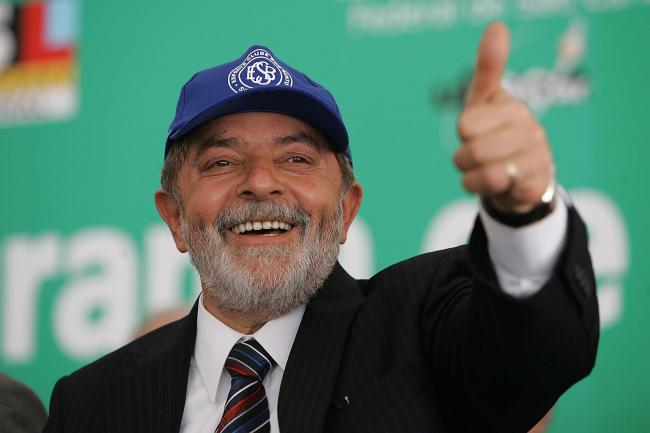by SEAN T. MITCHELL

The inauguration of the leftist two-time former leader as Brazil’s president is a source of hope for social and environmental movements worldwide.
Despite the Brazilian Amazon’s importance to the global climate, Brazil’s lame-duck president, the far-right Jair Bolsonaro, was not one of the many heads-of-state to attend the United Nations Climate Conference COP27, which took place in November. Instead, Brazil’s president-elect, Luiz Inácio Lula da Silva of Brazil’s left-wing Workers’ Party (PT) attended and made headlines worldwide when he declared: “Brazil is back.”
Bolsonaro spent four years greenlighting the devastation of the Amazon—years in which deforestation shot up by 73 percent. After such destruction, the leadership of Lula, who oversaw a 67.6 percent reduction in deforestation during his previous two terms as president from 2003 to 2010, was welcome news to many at the event. Supporters punctuated his speech with gleeful chants of his phrase, “Brazil is back, Brazil is back.”
Yet Lula’s speech offered a more profound challenge to the assembled world leaders than merely an affirmation of Brazil’s renewed support of the COP27’s environmental goals. Such affirmations are par for the course, and usually insincere; Bolsonaro promised zero deforestation by 2030 at the COP26 in 2021, something few took seriously. Lula’s speech also critiqued the global order, and implicitly, the priorities of many of the world leaders present.
“We spend trillions of dollars on wars that only bring destruction and death,” he said, “while 900 million people in the world don’t have anything to eat.” Lula also spoke of working towards a “peaceful world order based on dialogue, multilateralism, and multipolarity.”
We live in an era of deepening perils, including, as Lula noted in his speech, the apocalyptic return of the “threat of nuclear war.” The geopolitical order is also becoming more multipolar. That multipolarity could be characterized by dialogue and cooperation, or, instead, by violent conflict. We should take these statements by Lula seriously, and those of us concerned with a livable and just world should welcome Brazil’s renewed ambition in world affairs and Lula’s bid to push the increasingly multipolar order in the direction of dialogue.
